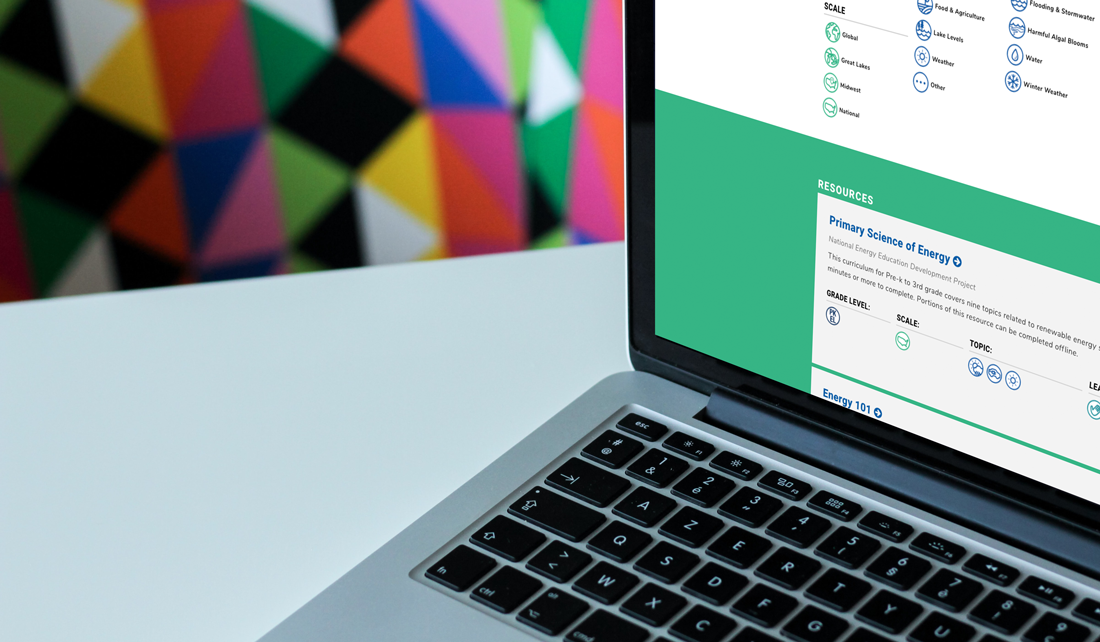
With the prolonged pandemic continuing to affect the United States, traditional education has turned toward at-home learning and virtual classrooms to keep students safe. Now more than ever, teachers must be able to find lesson plans for their students that are adaptable to different learning environments and cover topics required by the curriculum. To meet these needs, Illinois-Indiana Sea Grant (IISG) has created a weather and climate education toolkit where teachers can find resources on the topics of weather, climate and climate change.
Teachers—whether parents, home school tutors or licensed professionals—can find what they need by using the search function to filter by grade level, specific weather and climate subtopics or geographic locations, learning mode and more. Many of the lesson plans and activities in this curated catalog of resources can be used as-is or adapted for virtual learning and at-home teaching environments.
“It was great to be able to work closely with our IISG education team to create this toolkit,” said Veronica Fall, climate extension specialist with Illinois-Indiana Sea Grant and University of Illinois Extension. “These are tough times we’re living in, so we’re excited to help empower educators, both locally and nationally, with additional resources to be able to teach complex topics in a virtual setting.”
IISG developed the weather and climate education toolkit with support from the Center for Great Lakes Literacy and the Midwestern Regional Climate Center.
Illinois-Indiana Sea Grant is a part of University of Illinois Extension and Purdue Extension.
Writer: Hope Charters

